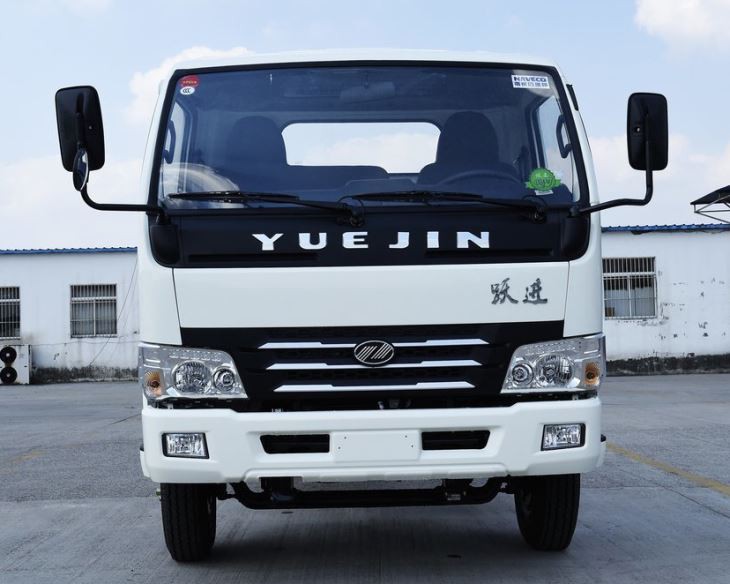In the dynamic world of logistics and transportation, fuel tanker trucks play a vital role in the distribution and delivery of petroleum products. With various options available in the market, finding the right fuel tanker truck is essential for businesses requiring efficient fuel transportation. This article provides an in-depth guide to purchasing a fuel tanker truck, exploring different types, pricing, regulations, maintenance tips, and much more.
Understanding Fuel Tanker Trucks
Fuel tanker trucks are specialized vehicles designed to transport liquid fuels such as gasoline, diesel, and other petroleum products. They come in various sizes and configurations to suit different needs.
Types of Fuel Tanker Trucks
There are several types of fuel tanker trucks available on the market:
- Single-compartment Tankers: These have one large compartment, suitable for transporting a single type of fuel.
- Multi-compartment Tankers: Ideal for transporting different types of fuel simultaneously, these tankers have multiple compartments.
- Vacuum Tankers: Designed for transporting and disposing of liquid waste, these tankers are sometimes used in the fuel industry.
- Bobtail Trucks: These smaller tankers can transport smaller quantities of fuel, making them perfect for local deliveries.
Key Features of Fuel Tanker Trucks
When considering a fuel tanker truck for sale, it’s essential to know what features to look for:
- Tank Capacity: Evaluate how much fuel you need to transport.
- Material: Tanks are usually made of steel or aluminum; consider durability and weight.
- Pump Type: Fuel tanker trucks can come with different types of pumps (mechanical/electrical). Choose according to your operational needs.
- Safety Features: Look for features like emergency shut-off systems and anti-siphon valves.
Where to Find Fuel Tanker Trucks for Sale
Finding a fuel tanker truck requires navigating various sources. Here are some popular options:
Online Marketplaces
Websites such as TruckPaper, CommercialTruckTrader, and eBay Motors list numerous new and used fuel tanker trucks. These platforms allow you to filter by price, location, and specifications.
Dealerships
Local and national dealerships often have a selection of fuel tanker trucks. They can provide warranties and financing options, which might be beneficial for larger purchases.
Auction Sales
Auction houses occasionally sell fleet vehicles, including fuel tanker trucks. This option can lead to significant savings, but bidding can be competitive.
Example of a Successful Purchase
A small delivery company in Texas used an online marketplace to find a used multi-compartment fuel tanker truck at a 20% discount compared to the new price. This strategic purchase allowed the business to scale its operations without financial strain.
Understanding the Costs of Fuel Tanker Trucks
The cost of a fuel tanker truck varies widely based on several factors:
- New vs. Used: New trucks typically range from $50,000 to $150,000, while used trucks can be found for $10,000 to $100,000, depending on condition and age.
- Size and Capacity: Larger and more complex tankers usually cost more.
- Specifications and Features: Trucks with advanced safety features or higher-grade materials are often pricier.
| Type of Truck | Price Range (USD) |
|---|---|
| Single-compartment Tanker | $50,000 – $80,000 |
| Multi-compartment Tanker | $80,000 – $150,000 |
| Used Tankers | $10,000 – $100,000 |
Regulations and Compliance
Operating a fuel tanker truck involves understanding various regulations and compliance standards:
Local and Federal Regulations
In the U.S., the Department of Transportation (DOT) and the Environmental Protection Agency (EPA) set certain standards for transporting hazardous materials, including fuels. Ensure you are informed about:
- Licensing and certification requirements
- Tank safety and maintenance standards
- The Hazardous Materials Regulations (HMR)
Insurance Requirements
Insurance is crucial for fuel tanker trucks. Consult with an insurance professional to find the right coverage for liability, cargo, and equipment damages.
Maintenance Tips for Fuel Tanker Trucks
Regular maintenance is key to ensuring safety and longevity. Consider the following tips:
Routine Checks
- Inspect pumps and hoses regularly for leaks.
- Perform regular oil changes and check fluid levels.
- Test all safety equipment, including emergency valves and alarms.
Record Keeping
Maintain detailed records of maintenance activities and inspections. This documentation can be vital for compliance and resale value.
Financing Options for Fuel Tanker Trucks
Buying a fuel tanker truck is a significant investment. Here are some financing options:
Loans and Leases
Many lenders offer loans specifically for commercial vehicles. Alternatively, leasing a tanker truck can be a cost-effective way to manage cash flow while obtaining the required equipment.
Grants and Incentives
Check for local and federal grants aimed at small businesses in the transportation sector. These can help offset purchase costs.
Choosing the Right Vendor
Selecting a reputable vendor is crucial. Consider the following when evaluating potential sellers:
- Reputation: Research reviews and testimonials from other buyers.
- Customer Support: Ensure the vendor provides good after-sale support and maintenance services.
- Warranty Options: A robust warranty can be indicative of the seller’s confidence in their product.
FAQ Section
1. What is the average lifespan of a fuel tanker truck?
The average lifespan of a fuel tanker truck can vary but typically ranges from 10 to 15 years, depending on usage and maintenance.
2. Are there specific driver qualifications for operating a fuel tanker truck?
Yes, drivers must have a Commercial Driver’s License (CDL) with a hazardous materials (HAZMAT) endorsement. This ensures they understand safety and regulatory compliance.
3. What maintenance is required for a fuel tanker truck?
Regular maintenance includes inspecting hoses and pumps, checking fluid levels, changing oil, and ensuring all safety features function correctly.
4. Can I modify my fuel tanker truck after purchase?
Yes, modifications can be made based on specific operational needs, but ensure they comply with safety regulations.
5. How do I ensure the safety of transporting fuel?
Follow strict safety protocols, conduct regular equipment checks, and ensure all drivers are trained in safe operating procedures.
6. What types of fuel can tanker trucks transport?
Fuel tanker trucks can transport various liquids, including gasoline, diesel, kerosene, and other petroleum products, depending on the tank design and compartmentalization.





